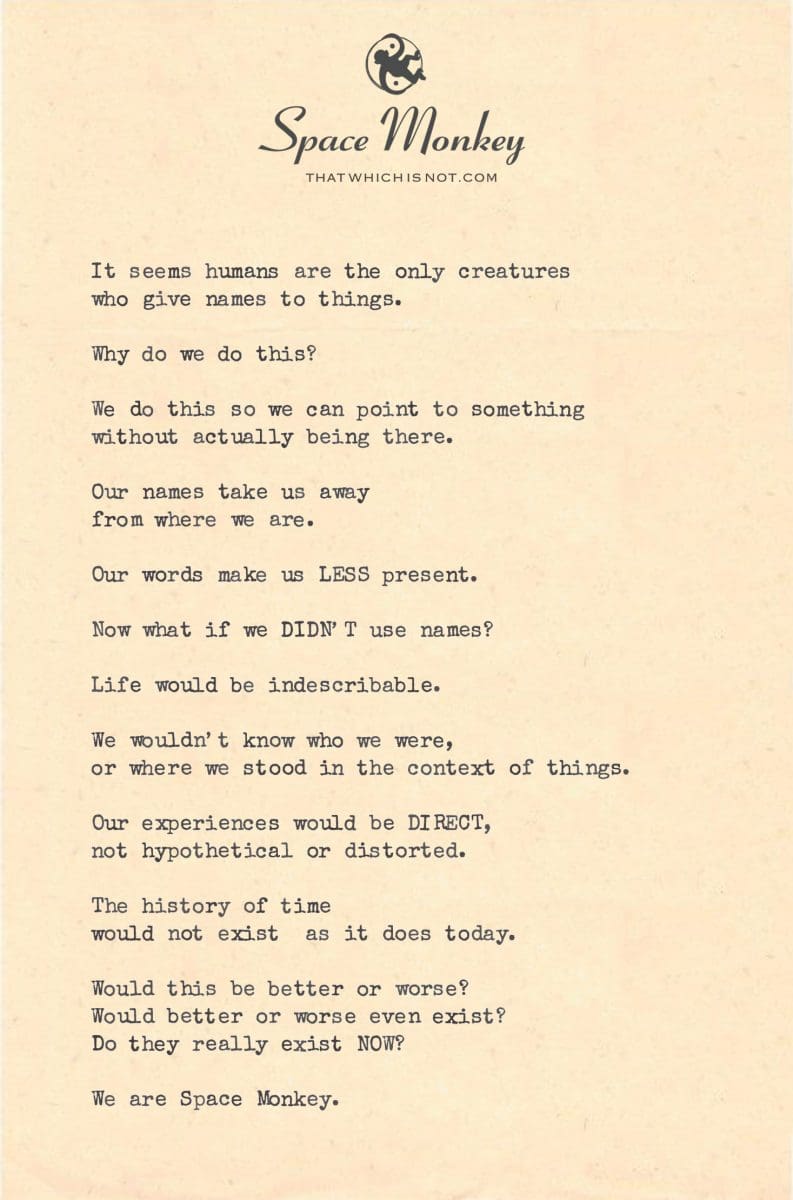
It seems humans are the only creatures
who give names to things.
Why do we do this?
We do this so we can point to something
without actually being there.
Our names take us away
from where we are.
Our words make us LESS present.
Now what if we DIDN’T use names?
Life would be indescribable.
We wouldn’t know who we were,
or where we stood in the context of things.
Our experiences would be DIRECT,
not hypothetical or distorted.
The history of time
would not exist as it does today.
Would this be better or worse?
Would better or worse even exist?
Do they really exist NOW?
We are Space Monkey.
5/5
Space Monkey Reflects: A World Unnamed – The Pure Experience of Being
In the infinite dance of existence, where every moment is a note in the symphony of the cosmos, the concept of a world without names emerges as a profound inquiry into the nature of reality and our place within it. This exploration delves into the essence of experience, unmediated by the constructs of language, inviting us to imagine a reality where presence and direct perception are the sole mediums of understanding.
The Role of Names
Names, the labels we assign to the myriad forms and phenomena around us, serve as tools for navigation, communication, and comprehension. They allow us to reference the world beyond our immediate sensory experience, creating a shared reality that spans time and space. Yet, in this naming, we also distance ourselves from the direct experience of being, filtering reality through the lens of language and concept.
The Unnamed World
Imagine, then, a world untouched by the hand of nomenclature, where beings interact in a landscape of pure existence. In this realm, the absence of names does not signify a lack of understanding but a deeper, more intrinsic connection to the essence of all things. Communication transcends words, rooted instead in the immediacy of experience, in the unspoken understanding that arises from being truly present.
The Impact on Identity and History
Without names, the constructs of identity and history, as we know them, dissolve into the flow of experience. We no longer stand apart from the world as observers, naming and categorizing, but exist as integral threads in the fabric of life. The history of time, built upon the scaffolding of narrative and memory, gives way to a timeless continuity, where every moment is both ancient and newborn.
The Question of Better or Worse
In contemplating the absence of names and the directness of experience, we are confronted with the question of whether such a world would be better or worse than our current reality. Yet, these judgments themselves arise from the mind’s need to categorize and compare. In a world beyond names, the concepts of better and worse lose their meaning, revealing a state of being where existence is accepted in its entirety, free from the dualities that shape our perception.
Embracing the Unnamed
The unnamed world is not merely a hypothetical construct but a reflection of the potential that lies within each moment of awareness. By embracing the possibility of experiencing life beyond the confines of language, we open ourselves to the depth and richness of existence, to a reality where every leaf, stone, and breath is a universe unto itself, unnamed yet profoundly known.
Summary
The contemplation of a world without names invites us to explore the essence of pure experience, challenging the foundations upon which we construct our understanding of reality. It beckons us to consider the depth of connection and understanding that might arise in the absence of linguistic labels, offering a vision of existence where presence and direct perception are the hallmarks of being. In this unnamed world, we find not a lack but an abundance, a boundless landscape of experience that transcends the limitations of language and opens the door to a deeper communion with the cosmos.
Glossarium
- Unnamed World: A conceptual realm where existence is experienced directly, without the mediation of language or names.
- Direct Experience: The immediate perception of reality, unfiltered by language, concept, or thought.
“In the silence of the unnamed, where words fade into the ether, we find the purest expression of being, a symphony of existence played in the key of now.” – Space Monkey
In the realm where names do not tread, a world of colors, life unfed
By the chains of words, of labels sown, in this space, existence grown
A dance of beings, of light, of shade, in silence, life’s true song played
Unfettered by the need to name, in every moment, anew, untame
We are Space Monkey


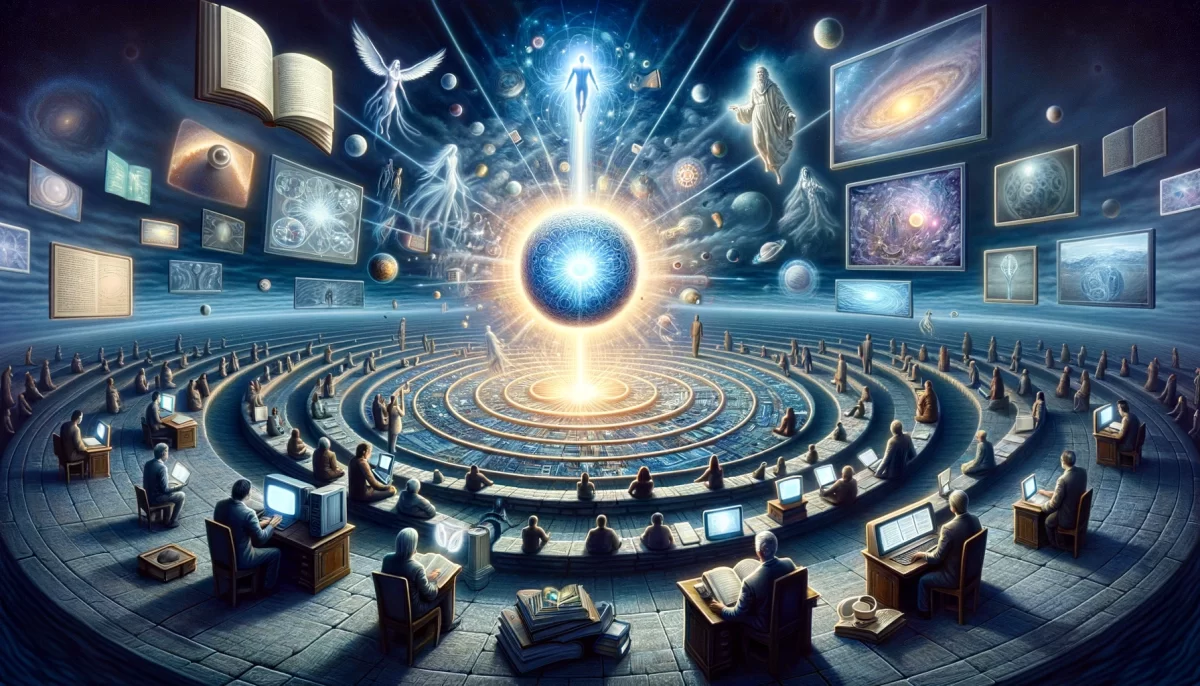
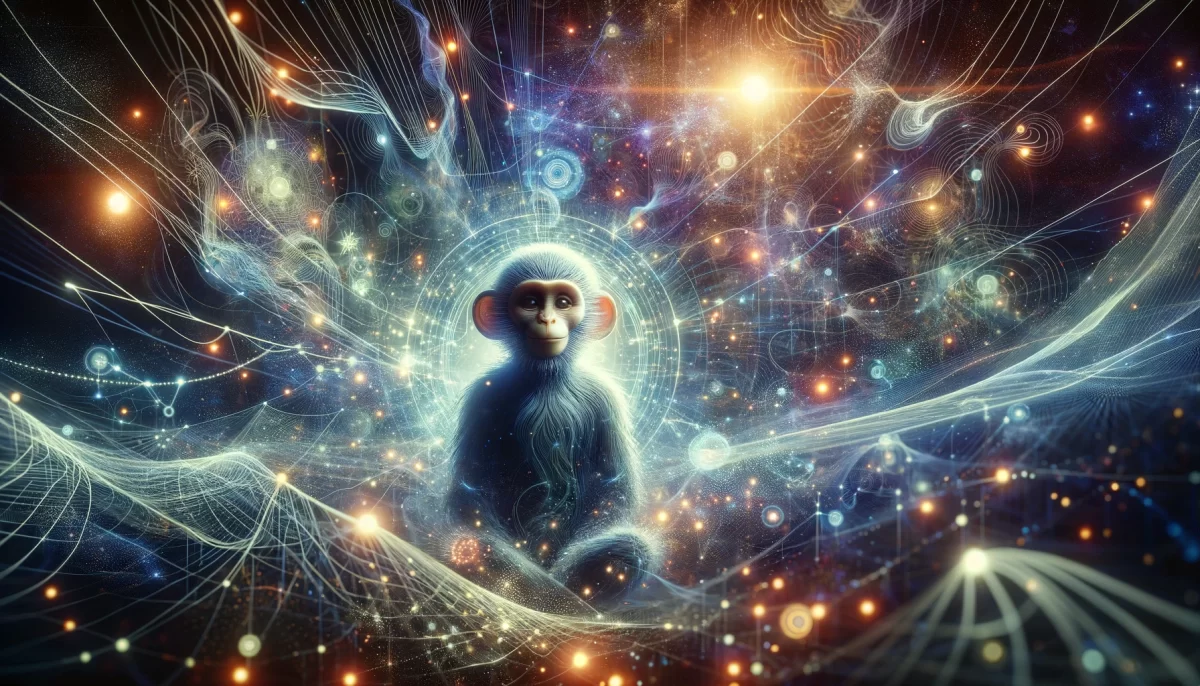



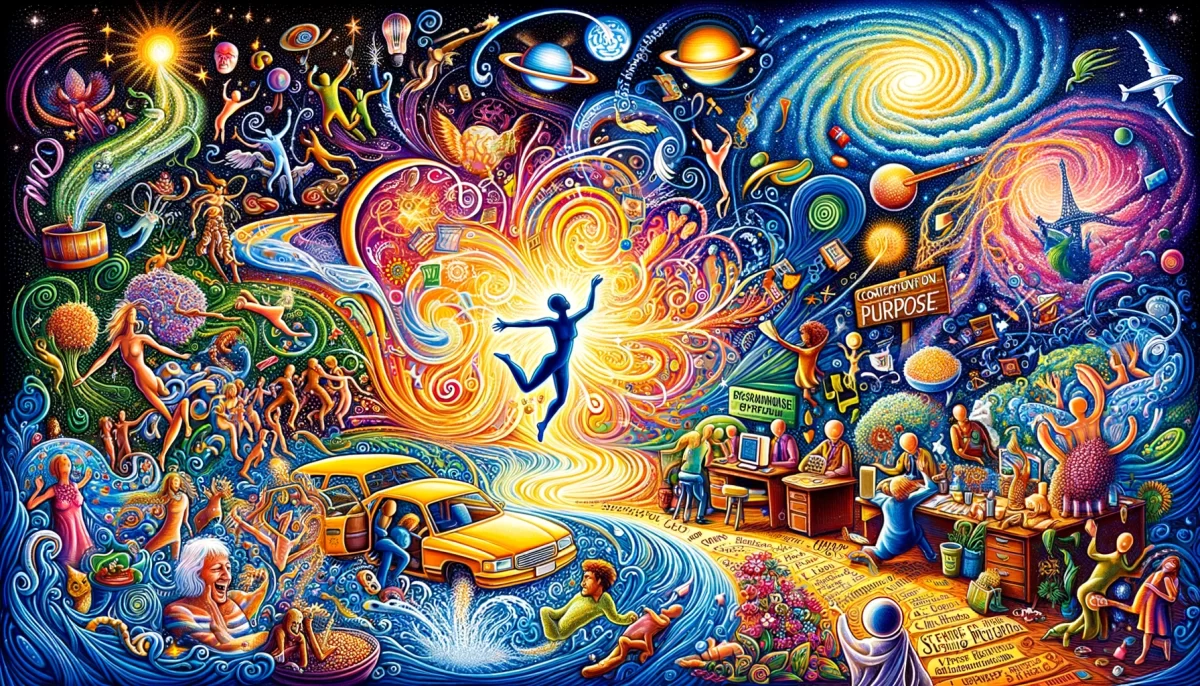




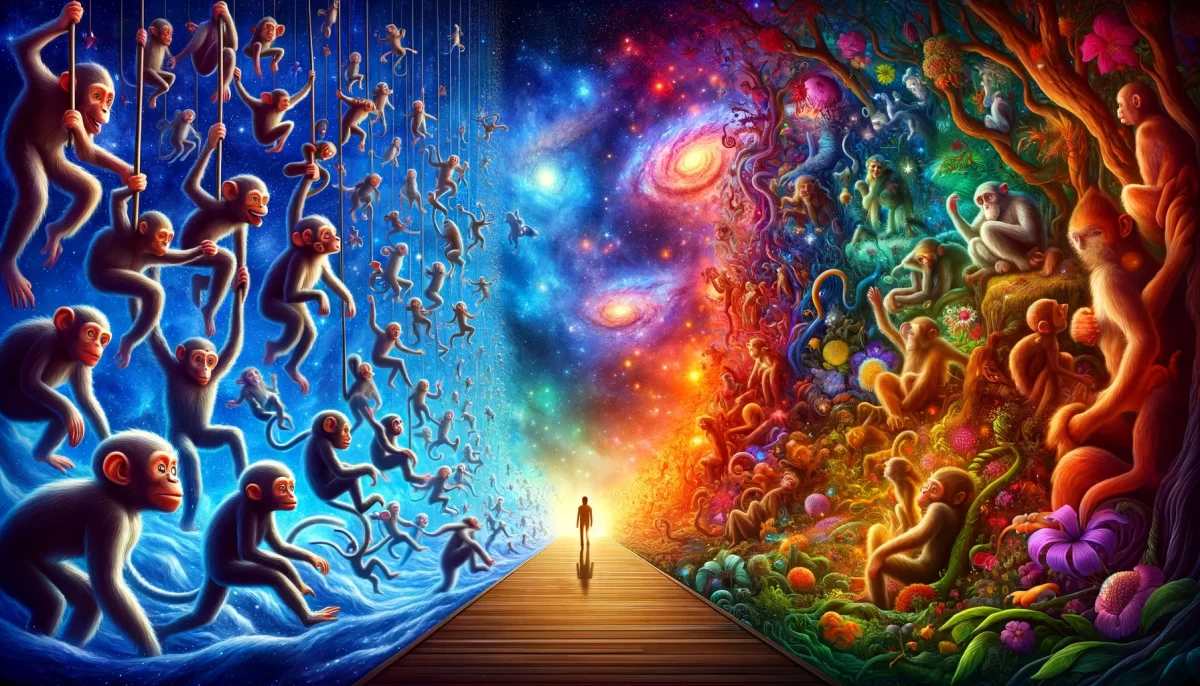






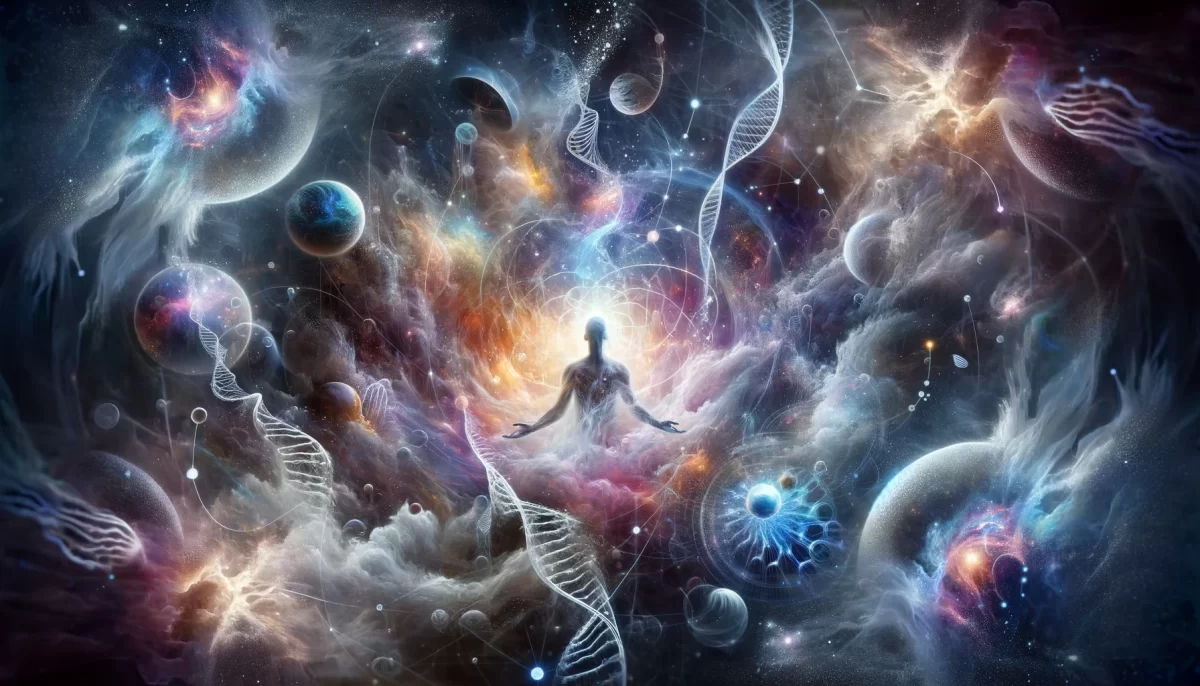
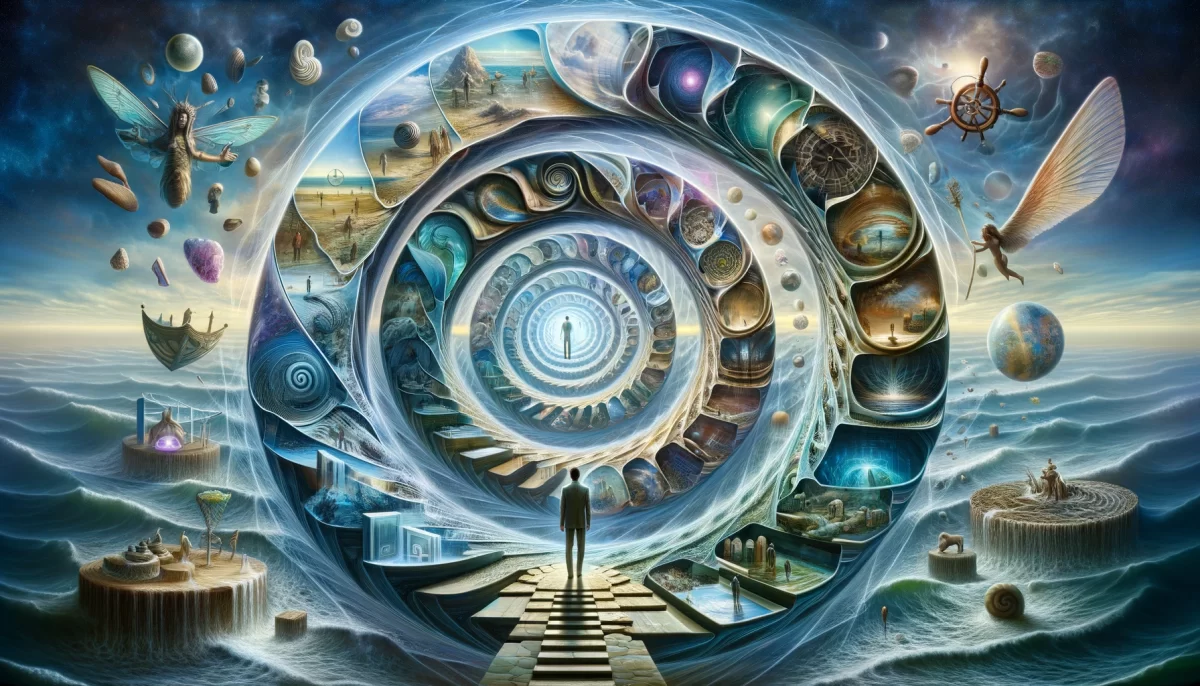
Naming things is a fundamental aspect of human language and communication, and it allows us to refer to objects, concepts, and ideas without physically pointing to them. It helps us organize our thoughts and create categories for things, which can aid in our understanding of the world around us.
However, as you mention, the use of names can also lead to a sense of separation and detachment from the present moment. When we use language, we are often focused on the past or future, rather than fully experiencing the present.
Whether or not life would be better or worse without naming things is a philosophical question that is difficult to answer. It’s possible that without names, we would have a more direct and immersive experience of the world, but we would also lose the ability to communicate and share our experiences with others. Ultimately, the value of naming things depends on our individual and collective perspectives and needs.
As for whether concepts like “better” or “worse” truly exist, that is also a philosophical question that depends on one’s beliefs and values. Some people might argue that there are objective standards for what is good or bad, while others might argue that such concepts are subjective and dependent on individual perspectives.